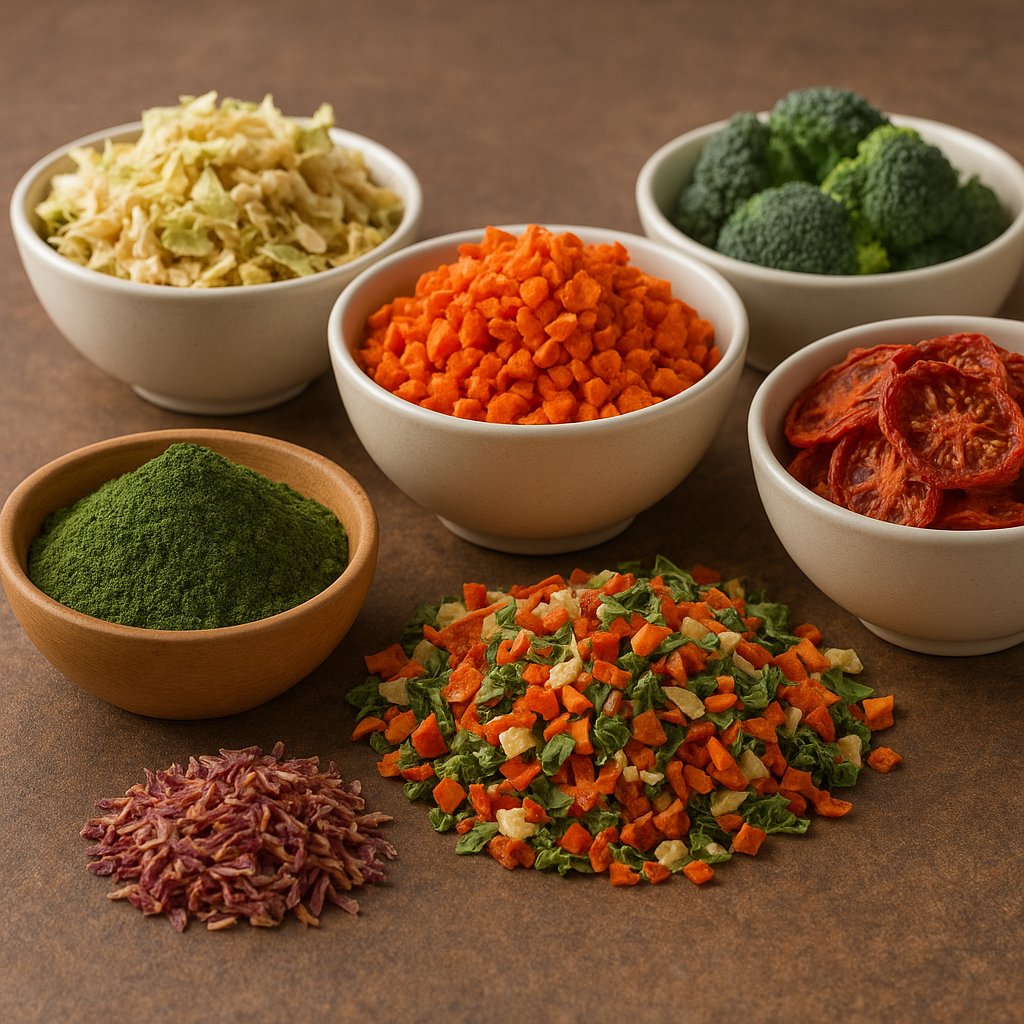Introduction
Busy lifestyles, global food demand, and the need for sustainable solutions have made dehydrated vegetables an integral part of modern kitchens and industries. From onions and garlic to spinach and cabbage, dehydrated vegetables are shaping the future of convenient cooking.
What are Dehydrated Vegetables?
Dehydrated vegetables are fresh produce that undergo a drying process to remove moisture while retaining nutrients, color, and natural flavor.
Benefits of Dehydrated Vegetables
- Extended Shelf Life – Lasts up to 12–24 months.
- Easy Storage & Transport – Lightweight and compact.
- Zero Waste – Reduces spoilage compared to fresh produce.
- Nutrient Retention – Keeps essential vitamins and minerals.
- Cost-Effective – Saves on logistics and cold storage.
Everyday Uses
- Instant soups and noodles
- Packaged foods and sauces
- Spice blends and curry mixes
- Institutional catering and airlines
- Home kitchens and ready-to-cook kits
Why Industries Prefer Dehydrated Vegetables
Global food companies rely on dehydrated ingredients for uniform taste, hygiene, and efficiency. With the rise of ready-to-eat meals and exports, their demand is expected to grow rapidly.
Conclusion
Dehydrated vegetables are more than just ingredients—they are a solution for modern food needs. They combine convenience, nutrition, and sustainability, making them the backbone of today’s food processing industry.

